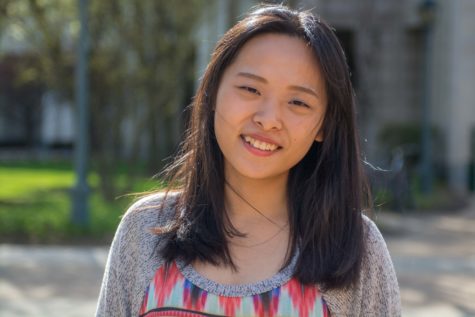Tobacco-free policy to be reconsidered following invalid vote, student reaction
Voted in by the Faculty Senate before winter break, the tobacco-free campus policy has now been recalled due to a lack of attendance at the last Faculty Senate meeting. At the same time, rising student attention to this policy has led to new developments in the decision-making process.
Attendees at the December Faculty Senate meeting voted for a proposal banning all tobacco-related products on campus. However Faculty Senate later realized that the last two meetings have failed to meet a quorum, meaning that the decisions made in these meetings, including the tobacco-free campus policy, now must be reconsidered.
According to Dr. Roy Ritzmann, the president of Faculty Senate, the tobacco ban will be voted on again in the next Faculty Senate meeting on Jan. 21.
“Given the wide positive margin in the original vote, I expect the issue to still pass, but one never knows,” said Ritzmann.
Following the December Faculty Senate meeting where this policy was voted in by the non-quorum assembly, the Undergraduate Student Government (USG) General Assembly passed a resolution addressing the lack of student input in the policy.
Throughout the drafting, proposing and decision-making phases of the new tobacco-free policy, going back to as early as 2011, the tobacco-free proposal was presented to USG several times by Vice President of Student Affairs Lou Stark, Assistant Professor in the School of Nursing Elizabeth Click, who helped create this policy, and Stan Gerson, M.D., director of the Case Comprehensive Cancer Center. Students were asked to contribute their opinions in two surveys, conducted in 2011 and 2014 respectively.
The divergence between USG and the administration arises on the issue of a referendum on the new tobacco-free policy. In 2014, based on a survey showing that 52 percent of students supported a tobacco-free campus, USG passed a resolution requesting a referendum to involve student input upon the completion of the policy. In another USG General Assembly in April 2015, the question of having a referendum was again brought up and the USG representatives were in favor of it.
After Faculty Senate voted in support of the tobacco-free policy in December 2015, USG immediately voiced their concern on the ground that prior to the Faculty Senate vote, despite USG’s request, no referendum was held to collect student input.
“President Snyder thinks that the poll in spring 2014 already shows student support to the new policy,” said USG President Chippy Kennedy. “Representing the USG, I would say that, first of all, the poll was not about the policy, but about whether or not we should go tobacco free. Second, it might be fairer to have students look at the policy themselves. So President Snyder and I initially disagreed on the sufficiency of the 2014 poll.”
Now, with the recall of the Faculty Senate vote along with the USG resolution and growing student concern, the almost settled tobacco-free policy may yet experience some changes.
“USG leaders long have indicated that they hoped to have a vote regarding the tobacco-free policy once a draft was completed, and we understand that USG plans to conduct such balloting this semester,” says a statement from the university. “University officials will consider the results of this polling, along with all other formal and informal feedback received from constituents, as they move closer to adopting a final policy.”
Cautious to not respond to the possible new policy impulsively, the USG General Assembly on Tuesday tabled a second resolution demanding more student participation in the implementation process. However it is likely that USG will move forward with a referendum, provided a positive vote in the next Faculty Senate meeting and USG General Assembly consent.
Although feeling the need for additional student input, Kennedy acknowledges the significant student-administrator interaction within the last five years.
“Whether it is tobacco-free or need-aware, the power that students wield via the USG, or via being a student here, in the administration’s eyes, is incredible,” said Kennedy. “I don’t think many other universities have that sort of heavy student input, but we do, which is why it’s super interesting when students don’t think they are given enough [consideration from the administration].”
Kennedy also hopes that the tobacco-free issue will renew administrators’ attention to students’ opinions, and that it foreshadows a more active student-administrator dynamic.

Celia Wan is a sophomore majoring in mathematics and history. She joined The Observer in the fall of 2015 and became the news editor at the end of her...


